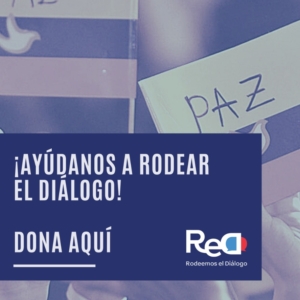UNIT FOR THE SEARCH OF DISSAPPEARED PERSONS (UBPD)
The UBPD team promotes discussion on disappearance in Colombia and actions that have contributed to the current situation. We seek to account for the complexity of this phenomenon that pervades all of society. Forced disappearance is a phenomenon that affects everyone, in different ways, not only those who have suffered disappearance in their inner circles. It poses challenging questions to all of society. As part of our work, we offer a space of reflection on this topic in our monthly snapshots.
Humanitarian Action by the Unit for the Search of Disappeared People (UBPD): The Case of Samaná
Relatives of Missing Persons are the Key Actors for the Unit of the Search for the Disappeared
In Colombia, there is a long history of searching for the disappeared and records of forced disappearance date back to the 1950s. Several actors have focused on these searches. On the one hand, the Colombian state looks for those missing, through judicial institutions and the police. On the other hand, the families of disappeared persons, who suffer deeply from the absence of their loved ones and the injustice of it, lead their own initiatives for encountering them. In both cases, searches are founded on chasing down leads, and following clues and intuitions. For the state this means implementing a systematic search with logistical and technical support. In the case of relatives, searches are more erratic, marked by deep loneliness, uncertainty and risk, but families also have the ability to imagine new forms of encounters. This snapshot analyses the commitment of transitional institutions to putting family members at the centre of their work.
The ABC of the Unit for the Search of Disappeared Persons (UBPD)
The Unit for the Search of Disappeared Persons (UBPD) is responsible for searching those people who were disappeared in the context of the armed conflict. It is one of the three institutions of the Comprehensive System for Truth, Justice, Reparations, and Non-Repetition (CSTJRN) that arose from the Peace Agreement signed in 2016. The unit was developed in response to requests by relatives of disappeared persons, and civil society organizations that were part of the peace dialogues. In particular, they asked for the establishment of an institution in charge of searching for the disappeared without discrimination on the basis of their origin, age, gender, religion, militancy, or any other factor.
EMBRACE DIALOGUE BY HELPING WITH A DONATION!
Your contribution will help us maintain and spread our operations on the ground in the different corners of the country.

- Polarización y Reconciliación: un balance académico a...24th November 2021 - 5:14 pm
 COVID-19: A Window of Opportunity for Negotiations with...25th April 2020 - 8:21 pm
COVID-19: A Window of Opportunity for Negotiations with...25th April 2020 - 8:21 pm- A Guide to the Investigation and Accusation Unit of the...20th March 2020 - 7:39 pm
- Extrajudicial executions presented as deaths in combat by...21st January 2020 - 8:56 am
 Listening7th November 2020 - 1:16 pm
Listening7th November 2020 - 1:16 pm- THE 7 CASES BEFORE THE JEP13th October 2019 - 5:04 pm
- Polarización y Reconciliación: un balance académico a...24th November 2021 - 5:14 pm
 Compassionate Reasoning and Reconciliation30th November 2023 - 6:38 pm
Compassionate Reasoning and Reconciliation30th November 2023 - 6:38 pm Diez Años de Procesos de Paz en Colombia28th November 2023 - 4:02 pm
Diez Años de Procesos de Paz en Colombia28th November 2023 - 4:02 pm Ten Years of Peace Processes in Colombia27th November 2023 - 10:36 pm
Ten Years of Peace Processes in Colombia27th November 2023 - 10:36 pm Compassion, Conflict and Reconciliation29th April 2023 - 4:48 pm
Compassion, Conflict and Reconciliation29th April 2023 - 4:48 pm Children and Youth: Lessons from the Colombian Truth Co...16th April 2023 - 11:59 am
Children and Youth: Lessons from the Colombian Truth Co...16th April 2023 - 11:59 am
